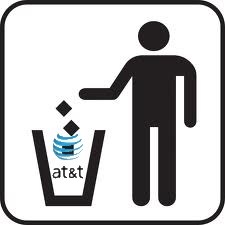
Ajit Pai
Meet America’s next chairman of the Federal Communications Commission Ajit Varadaraj Pai (born January 10, 1973): a lawyer formerly representing Verizon who wants to take a “weed-wacker” to Net Neutrality, thinks data caps represent innovation, opposes almost every consumer protection measure introduced by his predecessor Thomas Wheeler, and believes the best solution to improving broadband is to take pressure off companies like Comcast, AT&T, Charter, and Verizon.
Pai has been a commissioner at the FCC since 2012 where he and his fellow Republican Michael O’Rielly have strongly opposed most of Chairman Wheeler’s pro-competition agenda and broadband reforms:
- Pai and his chief of staff Matthew Berry vocally opposed efforts by Wheeler to monitor and manage providers’ implementation of data caps and zero rating schemes that exempt provider-preferred content from usage allowances or speed throttles. Pai said Wheeler’s inquiries to carriers regarding zero rating practices showed “the era of permissonless innovation is over,” followed by a Tweet from Mr. Berry complaining that, “If you come up with an innovative service, you will be hauled into FCC to explain yourself.” In 2012, Pai decried allowing Net Neutrality to take hold because it could lead to eventual regulation of usage-based pricing policies.
- Pai fiercely opposes Net Neutrality and told an audience at the conservative Free State Foundation in December he will remove “outdated and unnecessary regulations” and “fire up the weed-wacker and remove those rules that are holding back investment, innovation, and job creation.”
- In 2015, Pai cut and pasted large sections of AT&T’s website into a dissent over the FCC’s plan to fine the phone giant $100 million for deceiving customers about its “unlimited data” plan. Pai’s statement defended AT&T’s business practices and blamed consumers for not understanding AT&T’s definition of “unlimited.”
- Pai voted against the Charter – Time Warner Cable/Bright House Networks merger not because he opposed it. He was upset that Chairman Wheeler insisted on a seven-year ban on Charter implementing data caps. “Chairman Wheeler’s order isn’t about competition, competition, competition; it’s about regulation, regulation, regulation. It’s about imposing conditions that have nothing to do with the merits of this transaction. It’s about the government micromanaging the Internet economy,” said his spokesperson.
- Pai partly dissented from the AT&T buyout of DirecTV because he didn’t like the deal’s conditions mandating affordable internet access for consumers, marketplace protections for competing online video services, and a strongly empowered compliance officer assigned to make certain AT&T met its obligations — a lesson the FCC learned after Comcast was accused of skirting its obligations in its acquisition of NBCUniversal.
- Complained Comcast’s efforts to buy Time Warner Cable would be dead on arrival ‘because the Obama administration has shown itself much less likely to approve major telecom mergers — such as the blocked AT&T-T-Mobile merger — than a Republican administration might be.’
- Opposed Wheeler’s effort to force open the set-top box marketplace to competition so consumers can buy their own cable boxes at a lower cost.
- Called Wheeler’s push to have the minimum broadband speed standard reset to 25Mbps “incoherent,” claiming that 71 percent of consumers who can already buy access at those speeds don’t want or need it and that there was no need to push wired providers to deliver faster access because Verizon and AT&T already offer 4G LTE service to 98.5% of America.

Where your next FCC complaint will likely end up.
“Ajit Pai has been on the wrong side of just about every major issue that has come before the FCC during his tenure,” noted Craig Aaron, president of Free Press. “He’s never met a mega-merger he didn’t like or a public safeguard he didn’t try to undermine. He’s been an inveterate opponent of Net Neutrality, expanded broadband access for low-income families, broadband privacy, prison-phone justice, media diversity and more.”
In contrast, Comcast was thrilled with President Trump’s appointment.
“We commend [Pai’s] tireless efforts to develop and support policies that benefit American consumers and spur greater investment and innovation in broadband technologies to connect all Americans and drive job creation,” said David Cohen, senior executive vice president and chief diversity officer at Comcast. “This is a terrific appointment for the American consumer and the companies the FCC regulates and we look forward to continuing to work with Chairman Pai in his new role.”
That may not be too surprising, considering he spent his formative years in Washington as an associate general counsel at Verizon, where he helped the company deal with pesky regulatory matters. Pai has already given the public clues about how he is likely to respond to consumer complaints about the state of American broadband.
In January 2016, Pai complained the FCC should not be responding to the whims of public interest and consumer groups that “protest a particular [provider] offering,” referring to T-Mobile’s zero rating plan, claiming the “agency is going to jump to the tune” as a result. When the FCC starts scrutinizing providers over their “highly competitive and innovate service[s],” that represents the “very definition” of regulatory uncertainty.
For Pai, the ultimate sin seems to be bothering the incumbent telecom giants, who in his view seem to know what is best for America. So he is very likely to stay out of their way.


 Subscribe
Subscribe
Dump Ajit Pai and all who oppose Net Neutrality.